Irritable bowel syndrome is a serious condition that affects the large intestine mostly, especially the colon. It is also known as spastic colon, spastic colitis, mucous colitis, and nervous or functional bowel. The colon mainly performs two functions in the body. Firstly, it softens the stool, and secondly, it helps in propelling the stool from the right side of the rectum and stores it there until it is evacuated. When a person develops IBS, the colon does not contract normally; rather, it contracts in a violent, disorganized manner. One area of the colon contracts while other areas can't, so an abnormal pattern develops, leading to discomfort. It is a chronic condition that leads to an irregular bowel pattern.1
IBS is not a severe problem, and there is not an actual disease present in the colon; rather, it is a severe problem of abnormal function and mostly occurs in people with sensitive bowel.
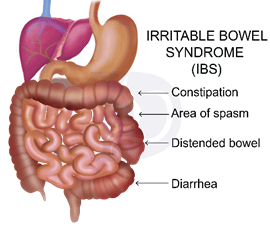
Causes of IBS
The exact cause of IBS is unknown, but these factors can lead to IBS:
- Severe infections
- Irregular muscular contractions and weak intestinal contractions lead to constipation, while strong contractions cause diarrhea.
- Stress plays a major role in getting IBS at a younger age.
- Nerves are present in the intestine for coordination between the brain and the intestine. When the nervous system is not working properly, these coordinated signals get disturbed and become a reason for pain.
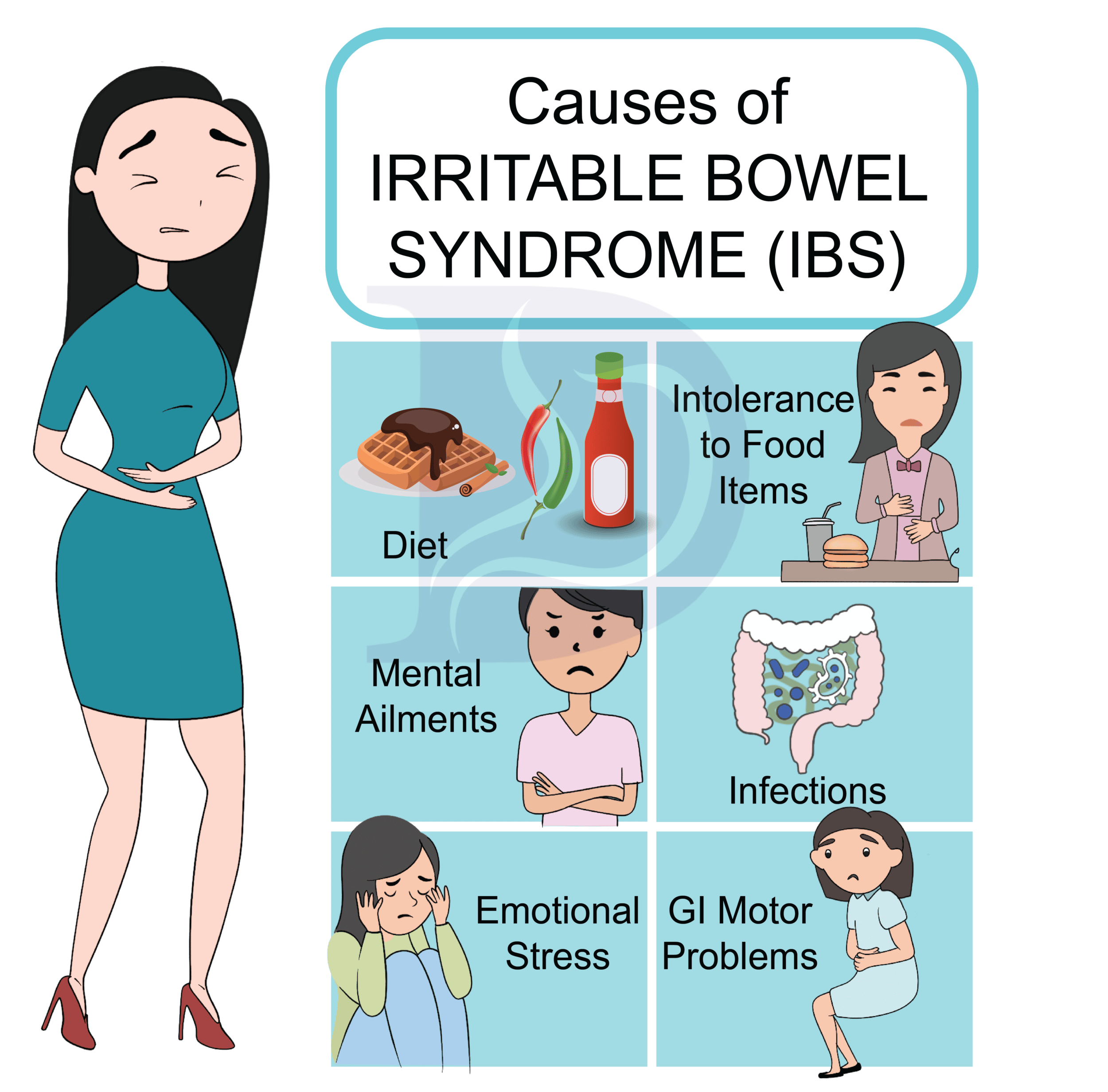
Triggers of IBS
Certain conditions can trigger IBS. Some of them are:
- Stress
- Certain food or beverages such as wheat, dairy products, citrus fruits, cabbage
Signs and Symptoms of IBS
They can vary from person to person, but some main symptoms are2:
- Abdominal pain
- Bloating, cramps
- Diarrhea
- Constipation
IBS Risk Factors
- Females are more prone to getting IBS
- Age below 40
- Family history of IBS
- Mental health issues, depression, anxiety
- Prolonged use of antibiotics
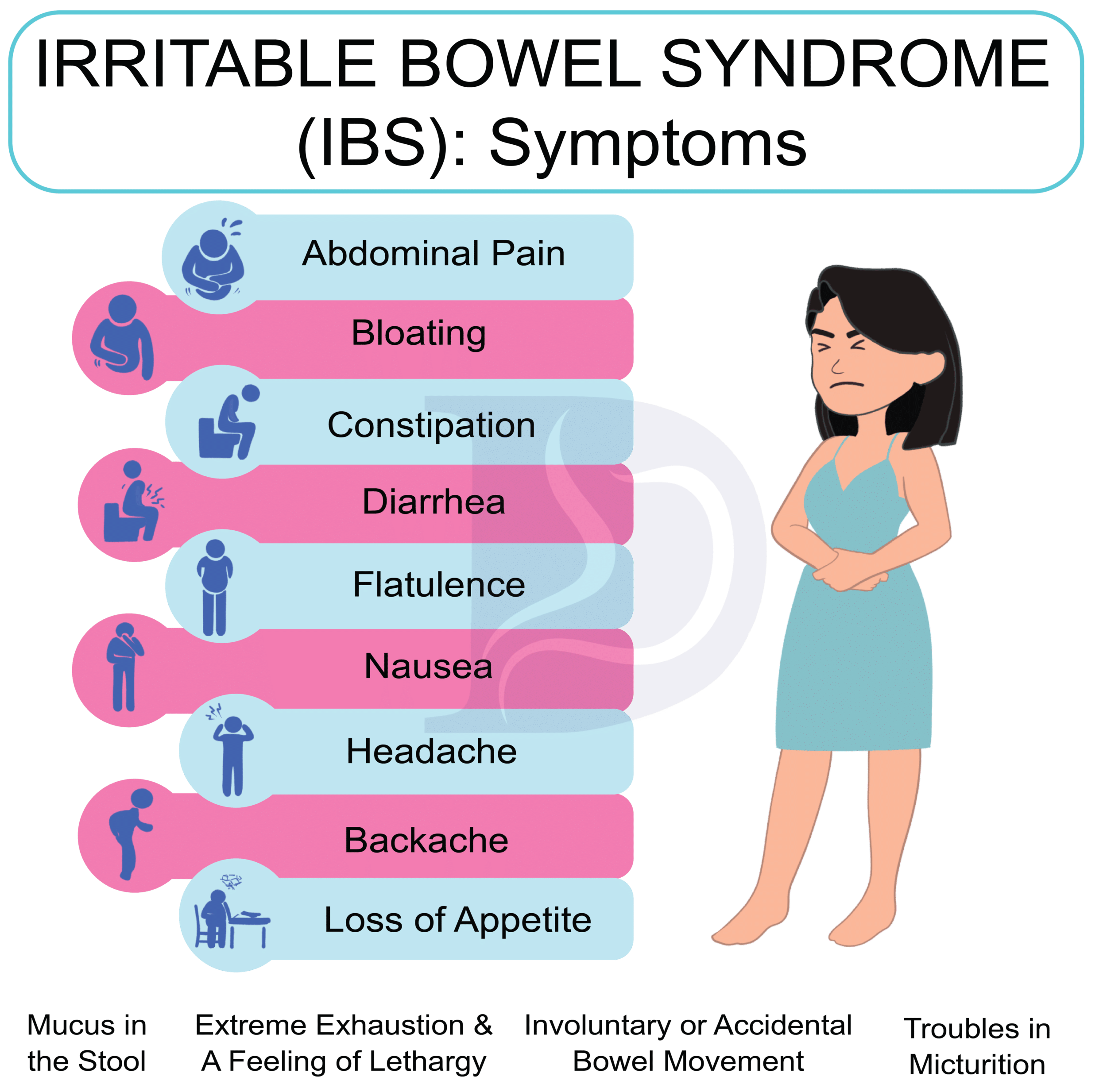
Complications of IBS
People with prolonged IBS have a poor quality of life and are more prone to develop mental health issues such as stress, depression, and anxiety; these symptoms can also trigger IBS. They might also suffer from iron deficiency anaemia, weight loss, and constant pain.
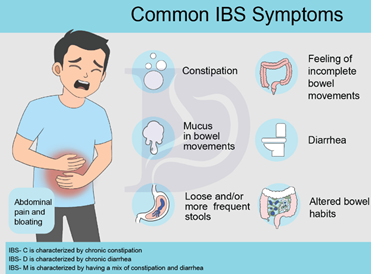
Diagnosis
Diagnosis of IBS is symptoms-based, and it is made after excluding all other conditions that can cause bowel dysfunction. Various tests are required, such as3:
- Colonoscopy
- Blood, urine, and stool exams to rule out infections
- Sigmoidoscopy
- X-ray of GIT
Treatment of IBS
Treatment of IBS mainly focuses on symptom relief. In IBS, there is a dire need to modify the patient’s lifestyle and psyche. Reassurance that there is nothing wrong with them plays a vital role in treating IBS.
Lifestyle Changes
- Exercise regularly
- Avoid taking caffeine
- Reduce stress
- Eat smaller meals
- Avoid eating spicy food
- High roughage diet
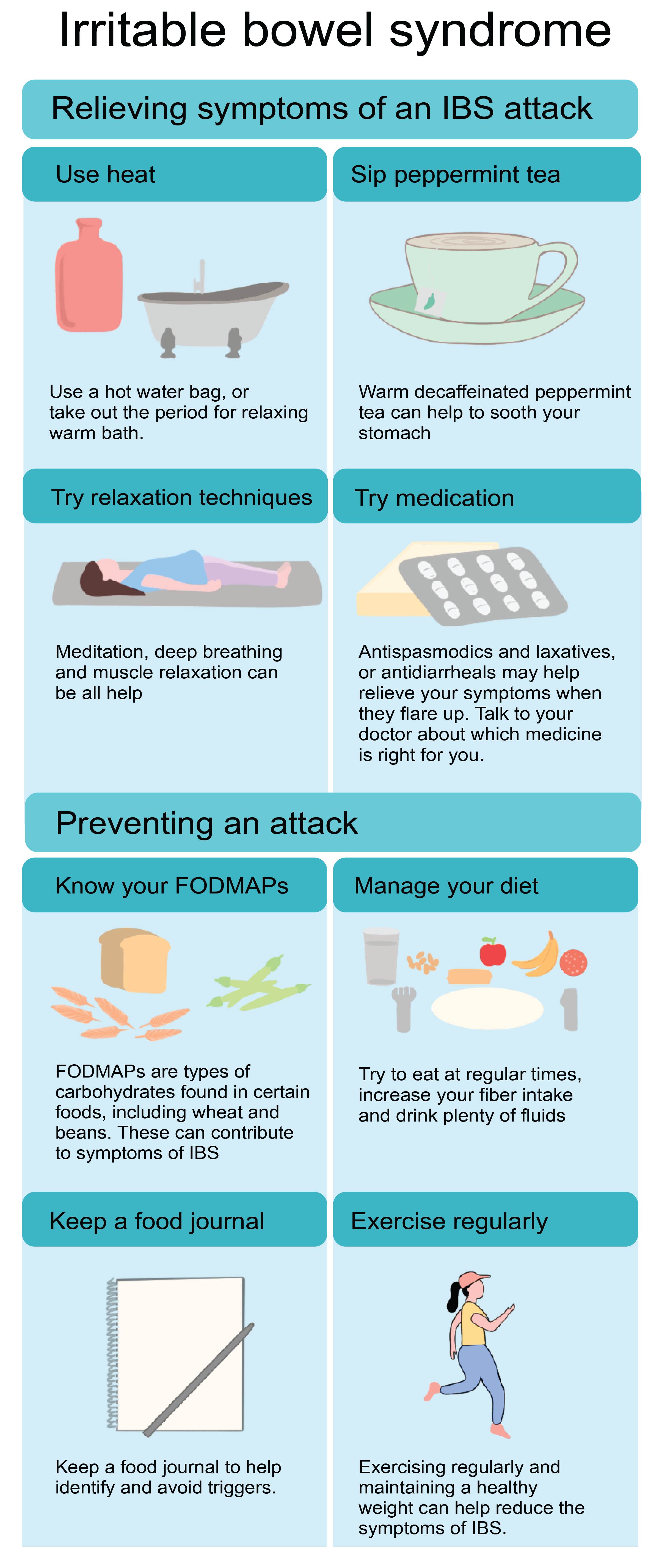
Medications
Medications that can be used for symptoms relief are:
- Anti-spasmodics to relieve excessive muscular contractions
- Antidepressants to reduce stress if stress is the main reason for having IBS
- Anti-constipation drugs such as laxatives
- Antibiotics for infections
References
- Weaver KR, Melkus GDE, Henderson WA. Irritable Bowel Syndrome: A review. Am J Nurs. 2017;117(6):48. doi:10.1097/01.NAJ.0000520253.57459.01
- Deng Y, Misselwitz B, Dai N, Fox M. Lactose Intolerance in Adults: Biological Mechanism and Dietary Management. Nutrients. 2015;7(9):8020. doi:10.3390/NU7095380
- Saha L. Irritable bowel syndrome: Pathogenesis, diagnosis, treatment, and evidence-based medicine. World J Gastroenterol. 2014;20(22):6759. doi:10.3748/WJG.V20.I22.6759

